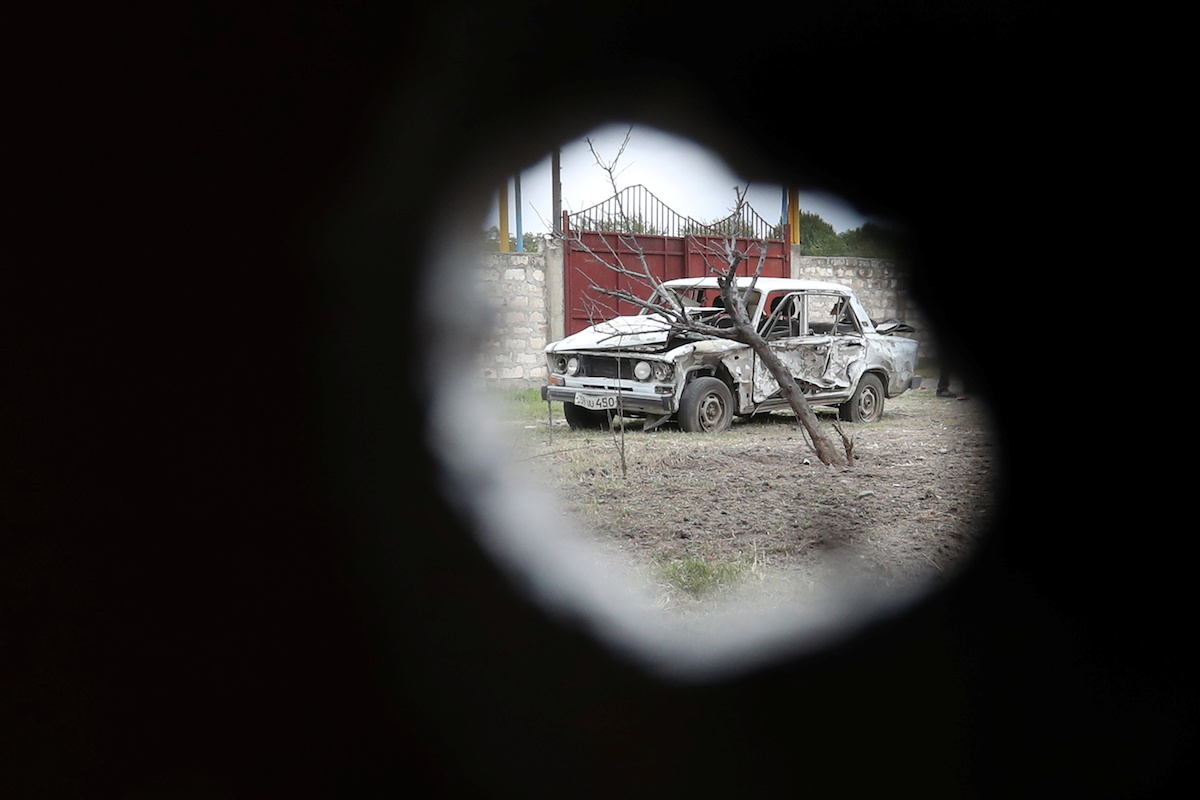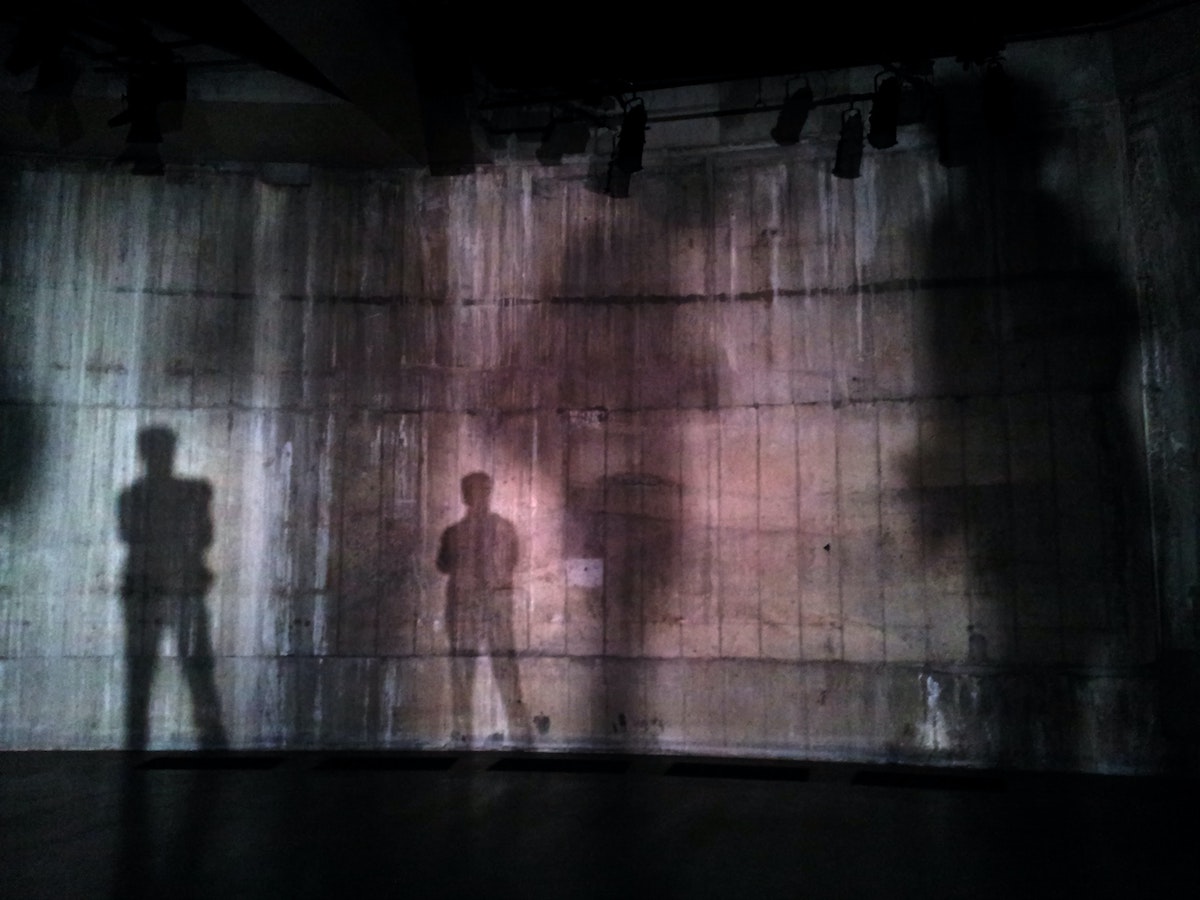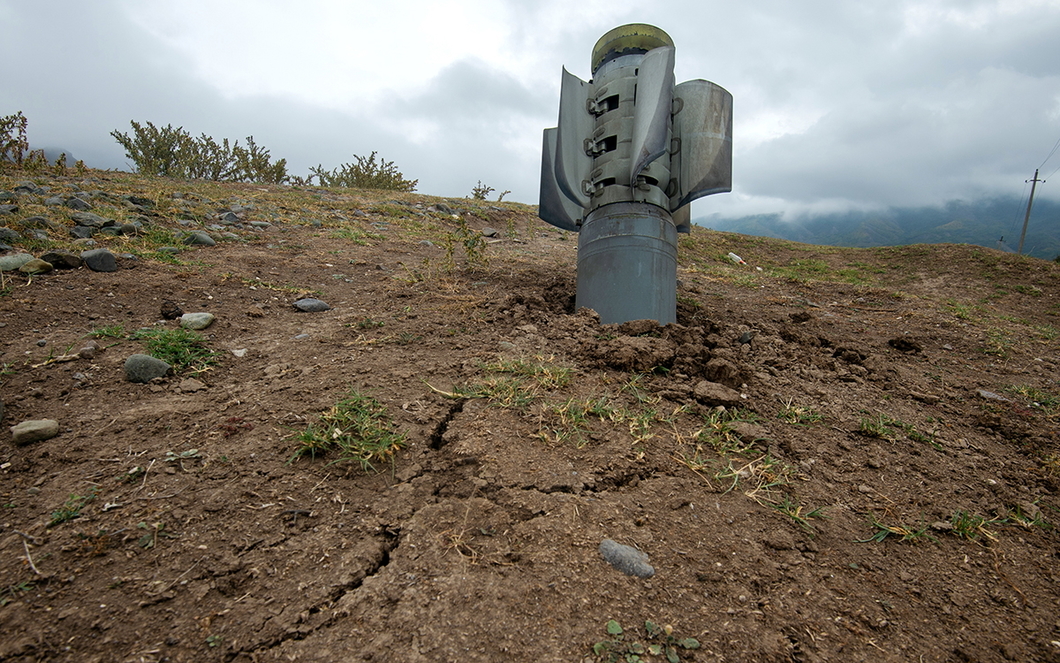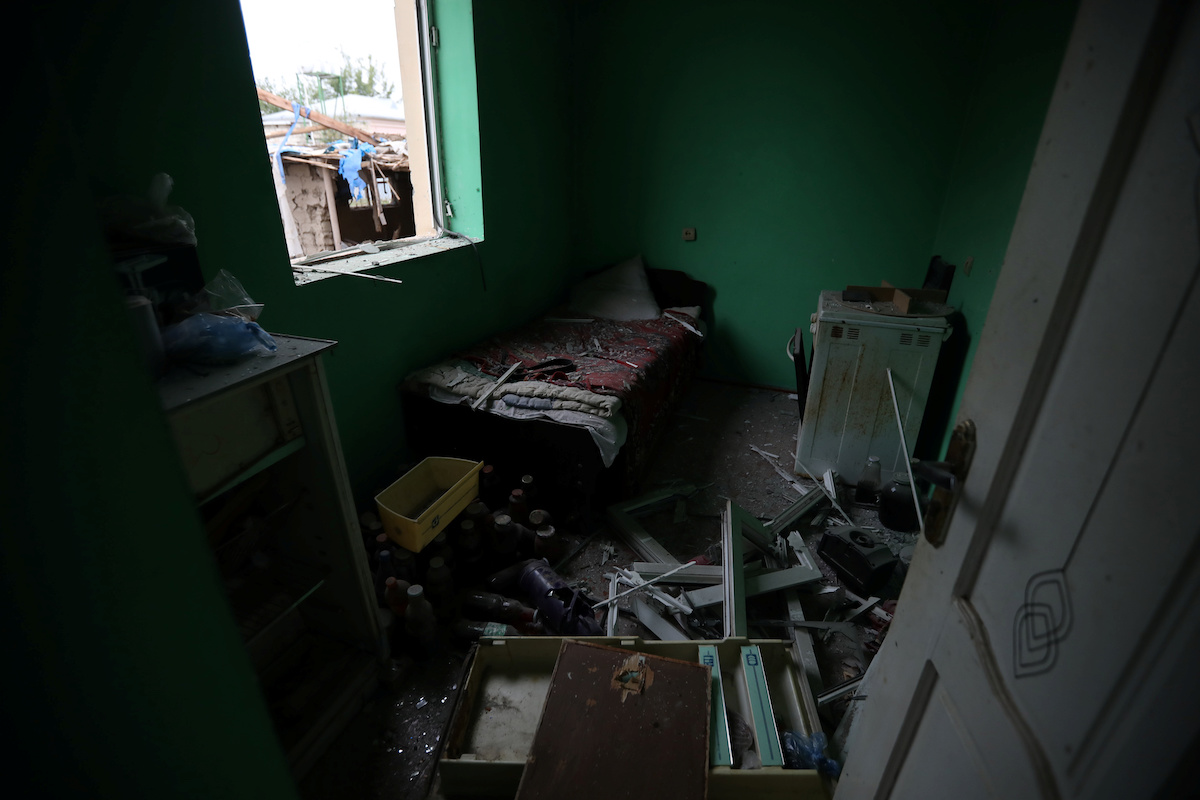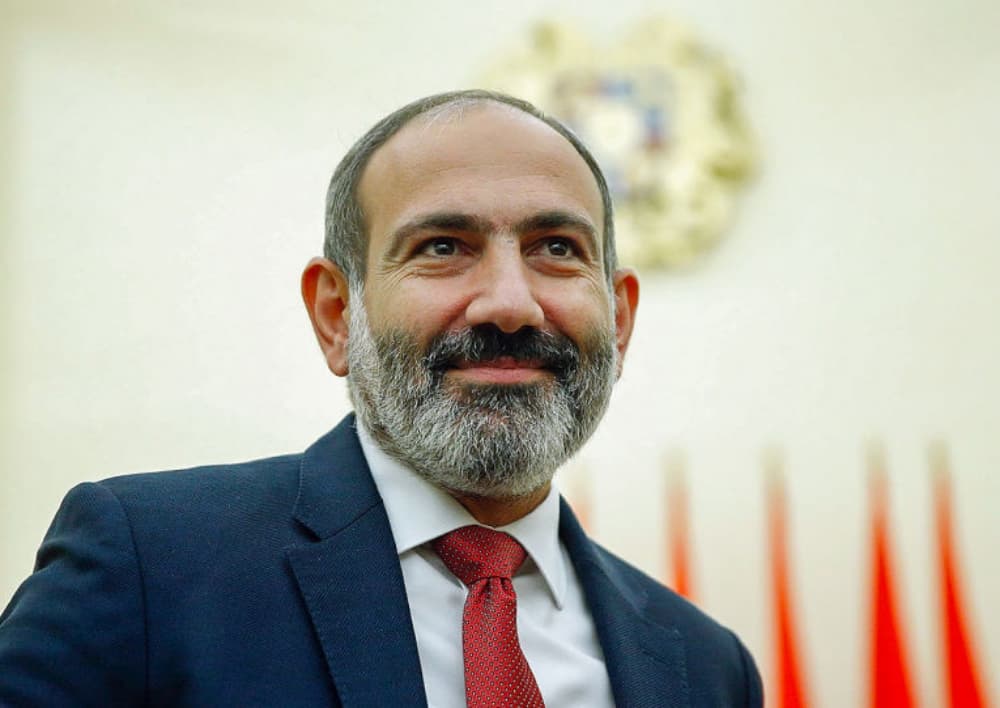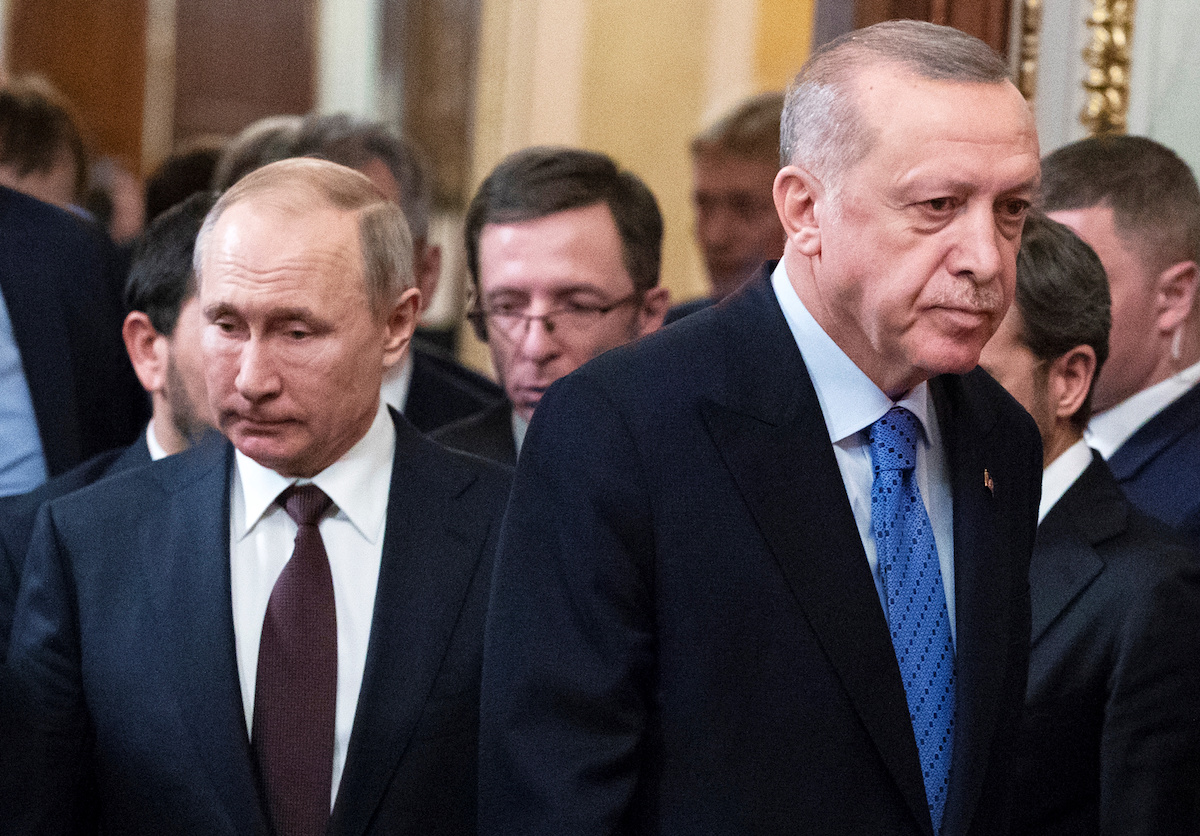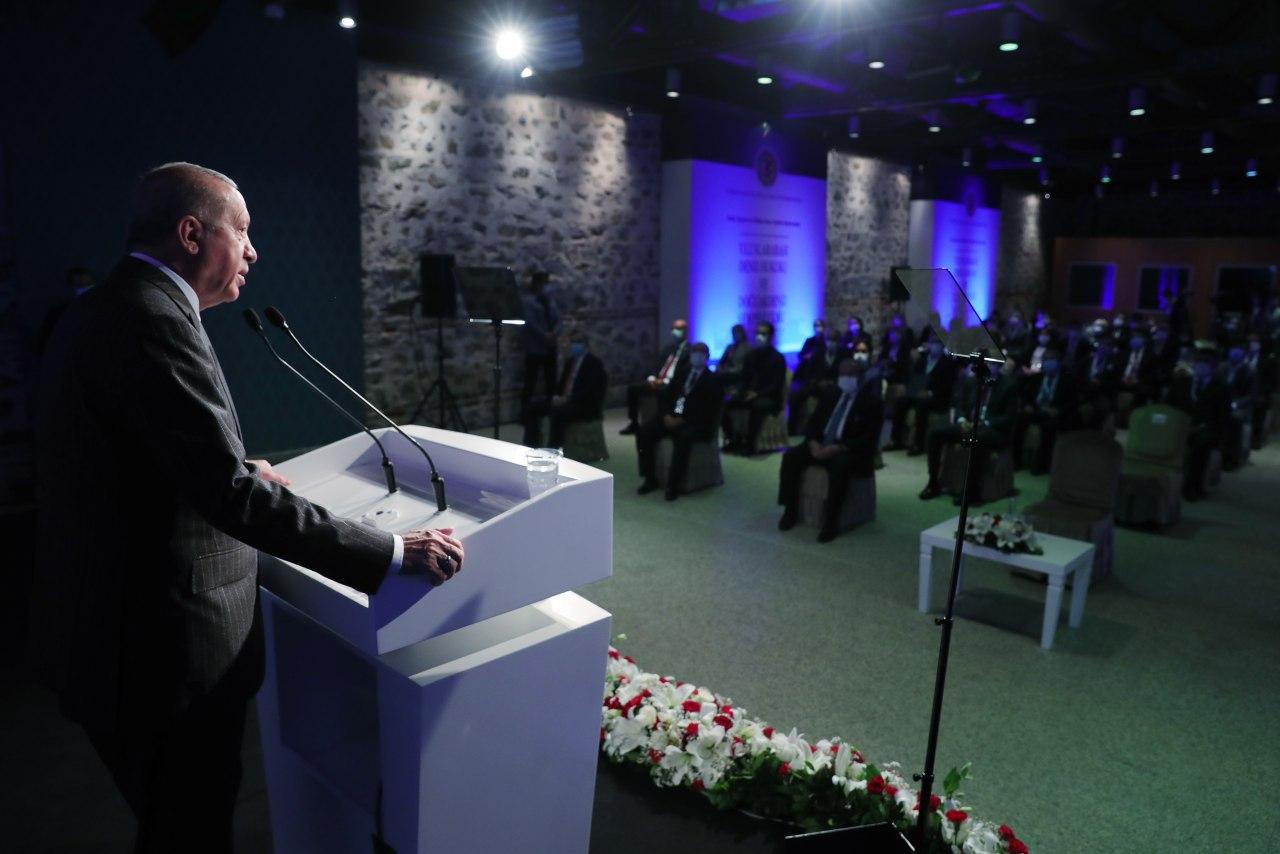Clashes in Karabakh, Day 8: what’s happened, what to expect, background
Full-scale military operations around Karabakh have been going on since September 27.
Border towns and villages in Azerbaijan and Armenia are also under fire. Casualties on both sides have already reached 300, including amongst the civilian population, with thousands wounded.
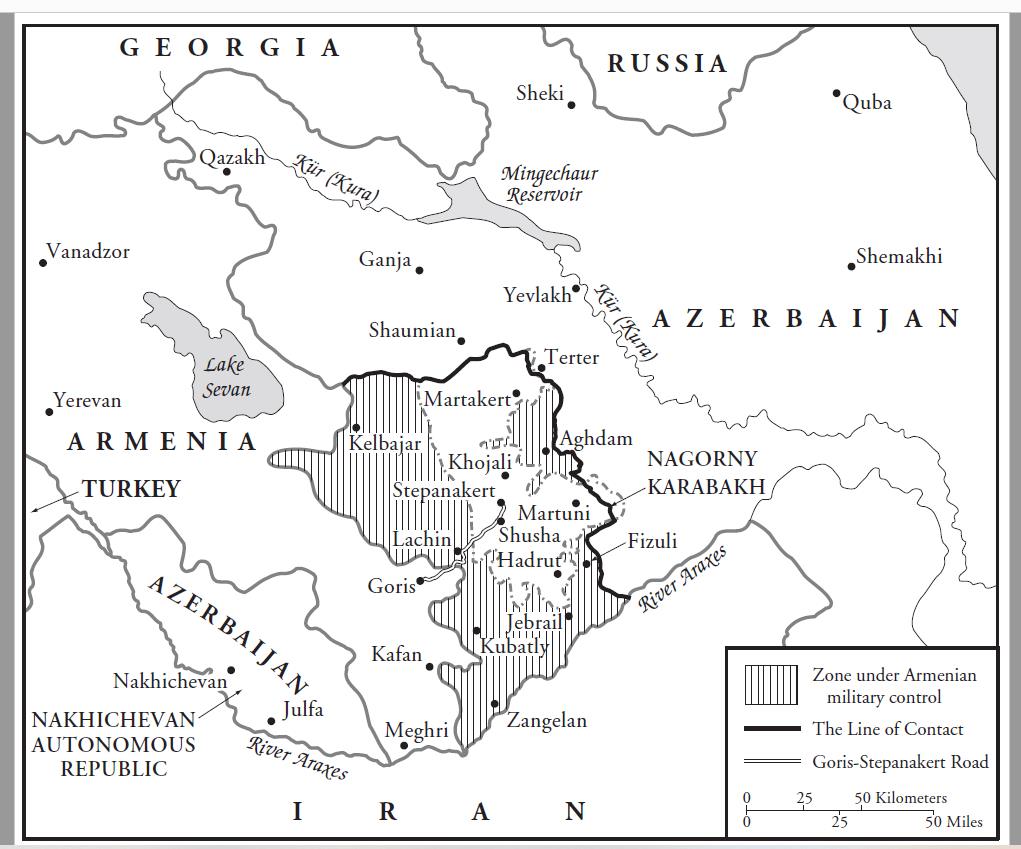
The UN and Western countries are calling for an end to the fighting without preconditions and a return to peace talks. Turkey stated that it supports Azerbaijan “in a just struggle for the liberation of the occupied lands.”
News and reports from all sides on the military actions around Karabakh and on the border of Azerbaijan and Armenia. Eighth day of fighting
About military operations
Morning of October 4, the eighth day of military operations in Karabakh. A brief summary of events at the time being:
• The total number of deceased Armenian soldiers has exceeded 200, the number of wounded is not reported. How many Azerbaijani soldiers died is unknown. Only civilian casualties are reported: 22 killed and 74 wounded. The Khazar center report from September 27 remains the only available source on military casualties: 11 deceased. Experts suggest large losses in military personnel, given the intensity of the fighting, which has been going on for eight days.
Photos of destroyed houses from Stepanakert, the capital of Karabakh, and the city of Terter in Azerbaijan. Seventh day of fighting in Nagorno-Karabakh
• Ganja, the second most important city in Azerbaijan, under shelling in the morning.
• The President of Karabakh said that his army had taken aim at large military objects in Azerbaijan.
• The Ministry of Foreign Affairs of Karabakh accused Azerbaijani military of tracking and shooting journalists in Karabakh.
• Azerbaijan stated that its army took control of seven villages in Jabrayil and Fizuli regions (adjacent to Karabakh and under its control after the Karabakh war in the early 1990s).
• The Azerbaijani military raised their national flag in the village of Madagiz in Karabakh, which was occupied on October 3. President Ilham Aliyev said that the village has been renamed Sugovushan – its original Azerbaijani name.
• President of Karabakh Arayik Harutyunyan went to the front and called the hostilities a “holy war”.
The sides downplay the number of their own casualties and exaggerate the enemy’s losses
• The Foreign Ministry of Nagorno-Karabakh called on the international community to recognize the independence of the republic “in order to ensure the rights of its residents to life and peaceful development.”
• A delegation of the Armenian parliament headed by Speaker Ararat Mirzoyan urgently left for Karabakh.
• The special services of Armenia published materials about the participation of mercenaries from Turkey in the hostilities on the side of Azerbaijan. A video has been circulated that allegedly provides a recording of the militants’ conversations and presents the available evidence.
• President of Azerbaijan Ilham Aliyev and Prime Minister of Armenia Nikol Pashinyan made policy statements.
• Ilham Aliyev, among other things, named his condition for the cessation of hostilities and the start of negotiations: all Armenian military must leave Karabakh and adjacent regions of Azerbaijan according to an agreed schedule.
Ilham Aliyev spoke about the reasons for the escalation in Nagorno-Karabakh and the conditions of the ceasefire in an interview with Al-Jazeera
• Nikol Pashinyan reiterated the “unprecedented aggression of Azerbaijan” and called on “every citizen of Armenia and Karabakh to devote themselves to the Victory.” “Victory, only victory and exclusively victory – this is what we expect in the end!” Pashinyan finished his address.
On the seventh day of hostilities around Karabakh, the Armenian PM made a live broadcast. Nikol Pashinyan’s speech was announced in advance and people were waiting for it
• French President Emmanuel Macron, in a phone call with Azerbaijani President Ilham Aliyev, called for a truce and the resumption of the negotiation process. Aliyev placed all responsibility for the escalation on the Armenian side.
• The Co-Chairs of the OSCE Minsk Group (the main facilitator of the negotiation process in the Karabakh conflict) called for a humanitarian ceasefire to remove the bodies of deceased servicemen.
The price paid by the peoples of Armenia and Azerbaijan for the geopolitical fantasies of two authoritarian leaders – hundreds of dead and wounded – is not taken into account
Background
Nagorno-Karabakh is officially part of Azerbaijan, but exists as a de facto independent Nagorno-Karabakh Republic after the 1988-94 war.
This republic is not recognized by any state in the world. Armenia supports the self-proclaimed republic, but has never officially recognized it.
The unrecognized government of the republic also controls seven adjacent regions of Azerbaijan. Only ethnic Armenians live throughout the territory after the expulsion of ethnic Azerbaijanis following the war in the 1990s.
Three features of military operations on the contact line of the Armenian-Azerbaijani armed forces
That war ended with the signing of a truce. Negotiations on the settlement of the conflict with international mediation have failed so far. Azerbaijan continues to consider Karabakh and the territories adjacent to it as occupied and demands their return.
Shootings occur regularly in the region. The latest outbreaks of full-scale hostilities are the escalation on the border between Armenia and Azerbaijan on July 12-16, 2020 and the “April War”, or “four-day war” of April 2-6, 2016. As a result, dozens of people were killed on both sides.
Why outbreak in the Caucasus could lead to expansion of the war
Many international publications publish reports that militants from Turkey and Syria are fighting on the side of Azerbaijan. So far, these publications are based on anonymous sources.
French President Macron also accused Turkey of sending Syrian jihadists to fight in Nagorno-Karabakh.
Both Azerbaijan and Turkey categorically deny this information.
According to a report from the Syrian Observatory for Human Rights, about 900 Syrian mercenaries were brought to Azerbaijan by Turkish security companies. At the same time, fighters of Armenian origin from Syria were brought to Armenia to join the fight on its side.
Erdogan criticizes the West following a US statement on “uselessness of foreign interference in the solution of the conflict in Karabakh“ and the call of the Armenian PM “to contain Turkey”
A few days ago, Armenia recalled its ambassador to Israel for consultations – regarding accusations that Israel is selling Azerbaijan weapons that are used in the conflict.
If the involvement of Syrian militants in the conflict in Karabakh is confirmed, this will create a third theater of military operations for Turkey’s regional rivalry with Moscow.
Armenia is Russia’s strategic partner in the South Caucasus; a Russian military base is deployed in Gyumri in Armenia. On the other hand, Russia has close partnership ties with Azerbaijan.
The main statements from Moscow boil down to the same as those of the Western countries: the conflict must be resolved through diplomacy.










